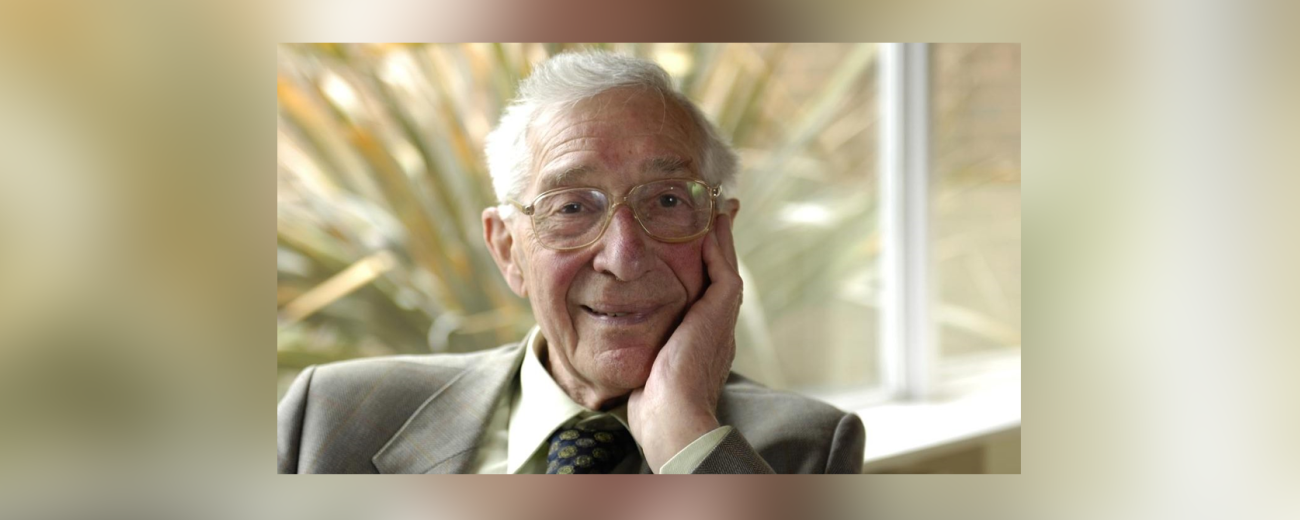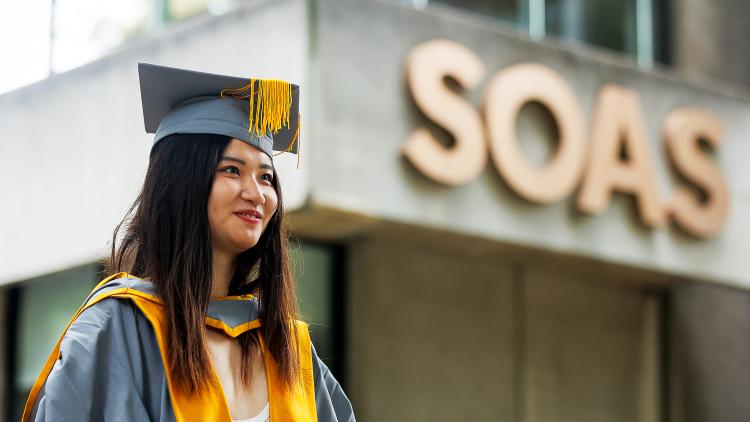Celebrating the 100th birthday of Dr Michael Loewe: alumnus, scholar and codebreaker


SOAS alumnus and former lecturer Dr Michael Loewe celebrated his 100th birthday back in November.
A scholar of many disciplines, Dr Loewe is perhaps best known for his work as a codebreaker at Bletchley Park during World War II, his career in sinology and his 27-year tenure teaching at the University of Cambridge.
A true SOAS linguist
As a schoolboy, Michael proved a brilliant classicist, winning a scholarship to Magdalen College, Oxford to read Greats. However, in the early years of WWII, whilst at Oxford, he was selected to learn Japanese on an experimental intensive language course designed to provide much-needed linguistic intelligence for war work. After the war, Dr Loewe’s story became distinctly SOASian. For one, he completed a first-class degree in Classical Chinese at SOAS in 1951 and went on to become a Lecturer in the History of the Far East here for seven years in 1956. A legacy of specialism in China was sparked by a six-month visit to Beijing in 1947 - interestingly, after an initial foray into Japanese.
Jason James, Director General at the Daiwa Anglo-Japanese Foundation and family friend, notes: “In the context of the current controversies about Chinese influence on academia, I understand Michael to have been one of those academics who was always clear-sighted about China's positives and negatives and not swayed in his research by any consideration of what the Chinese authorities might think.”
Dr Loewe’s particular interest lay in Han-Dynasty China. Amongst his earlier works were Records of Han Administration (1967) and Crisis and Conflict in Han China (1974), but in retirement, he was frequently to be found working in Cambridge University Library, and he went on to publish Bing: From Farmer’s Son to Magistrate in Han China (2011), Problems of Han Administration: Ancestral Rites, Weights and Measures, and the Means of Protest (2016), and other works.
From scholar to codebreaker at Bletchley Park
A scholarship to study Classics at Magdalen College, Oxford, saw Dr Loewe hone the linguistic skills that would see him recruited by the British Government to assist with the war effort. With Britain short of linguists with expertise in Japanese at the time, Dr Loewe completed an experimental six-month course in Japanese for cryptographers and spent the remainder of the war code-breaking at in Hut 7, Bletchley Park, working on messages encrypted by the Imperial Japanese Navy.
Bletchley Park was also where he would meet his late future wife, Dr Carmen Blacker, a renowned Japanologist. Brought together by their mutual love of language, Dr Loewe and Dr Blacker made quite a pair before her passing in 2009. With the couple spurring each other on to significant academic achievements, Mr James recalls a glass building in their garden at Grantchester containing matching 'his and hers' studies. Lady Elizabeth Cortazzi, a lifelong friend, notes: “Michael’s devotion to Carmen during her long illness was moving. He visited her every day in her nursing home and took her out in her wheelchair when possible.”
A generous teacher and friend
With a rich history of work comes a plethora of stories. Dr Loewe is known by his friends and peers as a determined scholar. 34 years of teaching have not slowed his academic pursuits following his retirement in 1990, even in the face of health problems and advancing age. Mr James comments: “Michael continued to use his own study until quite recently, while he has left Carmen's pretty much as it was when she died. I have seen no evidence of any deterioration in Michael's brain function, and I think he would still be writing books in his study if it weren't that his eyesight has now deteriorated too far.”
Professor Peter Kornicki, Emeritus Professor of Japanese Studies at the University of Cambridge - and Research Associate at SOAS - considers Dr Loewe “meticulous and exact in his scholarship, generous as a teacher, and a colleague valued for his enthusiasm, the warmth of feeling and loyalty to his friends. I was fortunate indeed to have him as my neighbour during my early years as an inexperienced teacher in the Faculty of Oriental Studies.”
Lady Cortazzi notes that in the face of his illness, “He never complains and is always cheerful. He just accepts life as it is. I admire his courage, his fortitude, and his modesty.”
Many thanks to:
Professor Peter Kornicki
Jason James
Lady Elizabeth Cortazzi
Katherine Parsons
Sue Hudson


